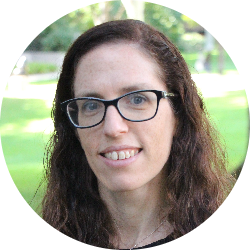I am currently on the job market
Liron Lavi, Ph.D.
laviliron@ucla.edu
Research Fellow
University of California, Los Angeles

Year of PhD: 2017
Country: United States (California)
About Me:
I am a research fellow at the UCLA Y&S Nazarian Center for Israel Studies. In my research, I study elections, representation, political communication, and democracy in Israel and the US.
Research Interests
Political Communication
Elections, Election Administration, and Voting Behavior
Text as Data
Public Opinion
Computational Discourse Analysis
Elections
Political Representation
Politics Of Time
Populism
Polarization
Social Media
Democracy
Countries of Interest
Israel
United States
My Research:
My current work focuses on representation in the eyes of the citizens. What does it mean for citizens in democracies to be represented? Does it even matter? This study, based on election surveys in Israel, shows that citizens' perspective on their political representation is multidimensional, but they do not feel represented on the dimensions important to them. The study shows that these perceptions are affected by deepening political polarization.Another study, in its final stages, focuses on populism in the 2016 U.S. election. This study employs computational text analysis of media election coverage and shows that after this election, the notion of the People has been detached from representative political institutions.
Publications:
Journal Articles:
A global trend of populism affects established democracies in Europe and around the world. Instrumental to this wave is the notion of the People, harnessed by populists’ rhetoric to their political advantage. Yet only little is known on the various, even contradicting meanings of the People in political discourse. Drawing on popular sovereignty theories and representation studies, in this paper I develop a theoretical framework of four key facets of the People—political, national, spatial, and abstract, and their two dimensions—concrete and diffuse. I argue that while elections are associated primarily with the political facet of the People, cross-temporal approaches to electoral representation highlight the People as a multifaceted construct. I explore these theoretical conjectures with computational text analysis of news media coverage of the 2016 American election. I find that the People is a multidimensional construct, with temporal dynamics that connect the political facet with the broader political agency of the People. However, this connection holds only before the 2016 election, and not after them. The results are discussed in relation to populism and the challenges democracies are facing.
Scholars have shown that time shapes journalism practices and news narratives. Yet the dynamics of time have received insufficient scholarly attention. In this study, I focus on how temporal plasticity—the dynamic employment of time—affects the construction of meaning in news media and social media. I draw empirical evidence from a cross-media computational text analysis of TV news and Twitter discourse in the 2016 American election. The study uncovers the dynamic utilization of time and its impact on the democratic meaning of the 2016 election (or the lack thereof) before, during, and after the election in “old” and “new” media. I find that a chronological temporal discourse on Twitter facilitates democratic meaning after the election, while a fragmented temporal discourse on the news media undermines the democratic meaning of the election. The results are discussed in light of the democratic role of “old” and “new” media.
How do citizens think about elections? Building on democratic theory, political psychology and political communication theories, we conceptualize how voters interpret elections in terms of election frames, and explore the interplay between them and media frames. Election frames are deduced from the empirical and normative body of work on elections and democracy and they are tracked empirically through in-depth interviews with citizens, carried out during the 2009 parliamentary elections in Israel. The article highlights three major findings. First, all election frames are represented in people's reasoning about elections, but there is considerable variability in their usage, and they are usually applied in rudimentary form. Second, the frames vary over different political contexts. And third, the public does not seem to absorb passively frames from the media, but rather plays an active role in the process of election interpretation, relying on diverse sources. It is proposed in the article that publics’ election interpretations are an important aspect of politics that should be placed on political scientists’ research agenda.
Despite global, economic, technological and social transformations, nationality has remained an influential identity category. It still forms the basis for collective self-determination, political sovereignty and sense of belonging. This article puts forward the concept of ‘Chrono-Work’ to offer a critical approach to national identity. Employing temporal and performative perspectives, the concept addresses the conditions for establishing and constructing national identity. Drawing on Judith Butler’s performance theory, it is suggested that performance of national acts loads national identity with meaning through the construction of a chronological narrative. To complete the theoretical picture, a case study of ‘Chrono-Work’ among the Jewish settlers on the Golan Heights in Israel is offered. It is shown that national identity is constantly performed through temporal strategies that aim at achieving a chronological order. Therefore, it is suggested that national identity is not given, but rather is the result of continuous ‘Chrono-Work’.
Immigration is not only about changing countries, but also about shifting identities. This change is especially important for adolescents. This article examines identity formation among 1.5 and 2nd generation adolescent immigrants to Israel. A survey of 125 children of immigrants aged 12-19 examined the role of social structures such as pace of life, culture, religion and language on identity formation in 1.5 and 2nd generational groups. We have identified several significant factors affecting the identities of children of migrants in each group. Looking beyond self-labeling, we argue that identity formation among children of immigrants is a continuous process in which the host country and origin country, both or neither of them, create dynamic hybrid patterns of identifications.
Media Appearances:
TV Appearances:
I was interviewed following the 2015 Israeli election on their impact on identity politics in Israel.
Newspaper Quotes:
I was interviewed about the latest 2019 Israeli election.